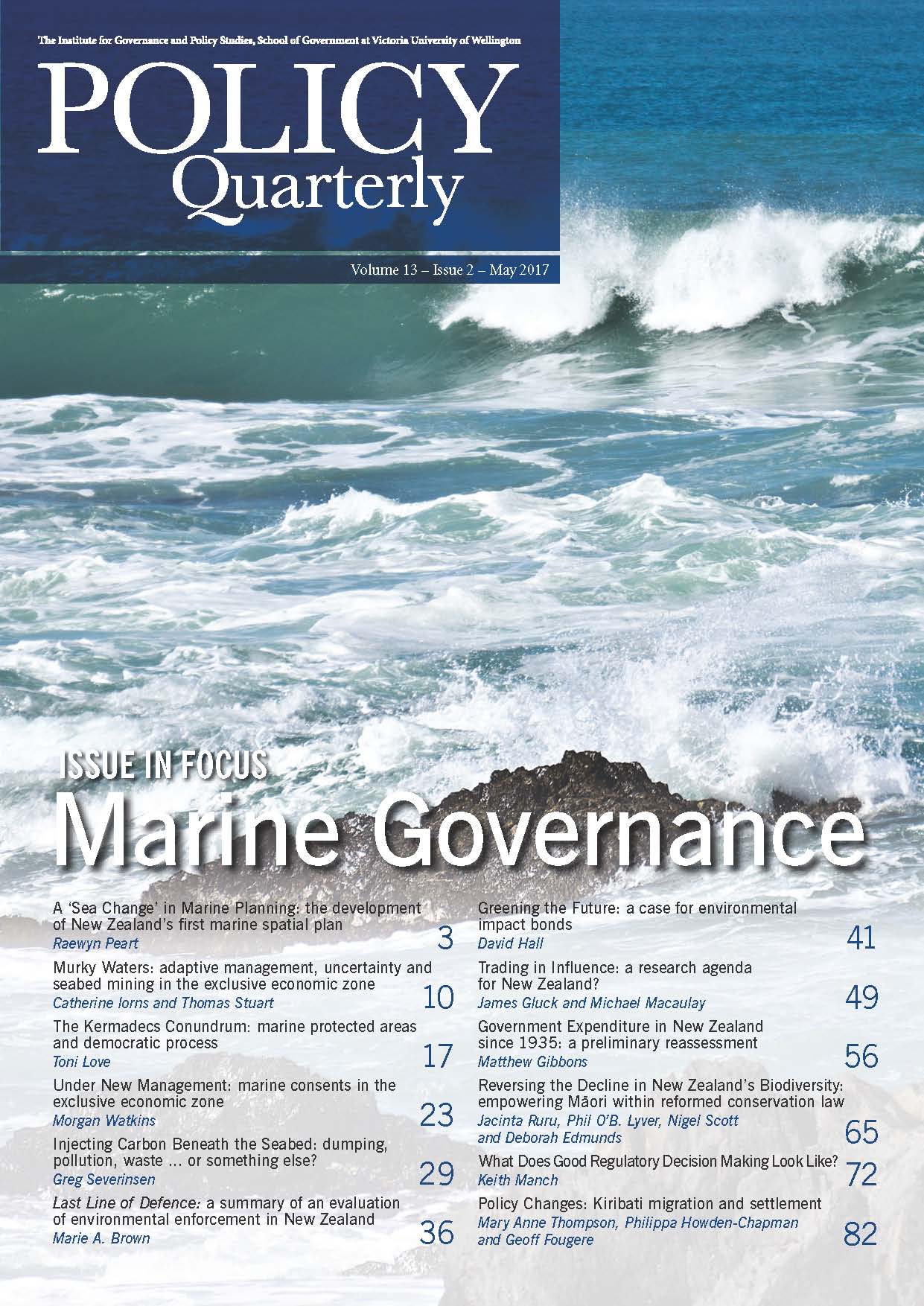Trading in influence: a research agenda for New Zealand?
DOI:
https://doi.org/10.26686/pq.v13i2.4663Keywords:
Organised Crime and Anti-corruption Legislation Bill, United Nations Convention against Corruption (UNCAC), trading in influence, influence marketing, political party donations and government appointments, anti-corruption legislation, Cabinet Club, cronyism, Transparency International’s Corruption Perceptions IndexAbstract
In November 2015 the Organised Crime and Anti-corruption Legislation Bill was passed by Parliament. An omnibus bill, it amended numerous different acts in relation to (among other things) money laundering, organised crime, corruption and bribery offences. One of its stated aims was to bring New Zealand legislation up to date to enable New Zealand to finally ratify the United Nations Convention against Corruption (UNCAC), which it did in December that year. The merits and potential demerits of the bill have been discussed previously (Macaulay and Gregory, 2015), but one thing that requires further attention is the creation of a new offence of ‘trading in influence’.
Downloads
Downloads
Published
Issue
Section
License
Permission: In the interest of promoting debate and wider dissemination, the IGPS encourages use of all or part of the articles appearing in PQ, where there is no element of commercial gain. Appropriate acknowledgement of both author and source should be made in all cases. Please direct requests for permission to reprint articles from this publication to Policy-Quarterly@vuw.ac.nz.



